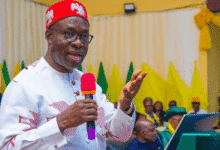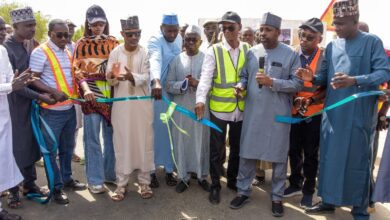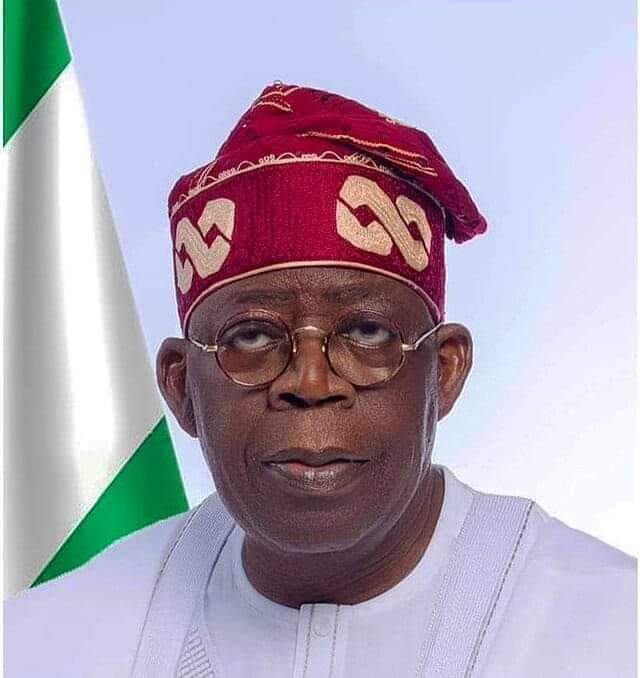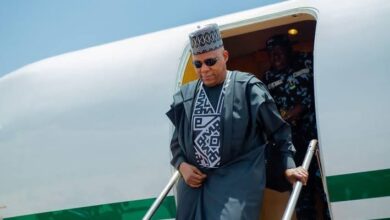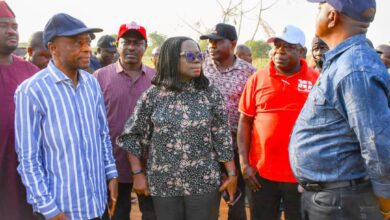Poverty, Inequality, Social Injustice, Others Fuel Terrorism In Africa -Tinubu

By Sunday Etuka, Abuja
President Bola Tinubu has said that in order to effectively tackle the scourge of terrorism in Africa, a comprehensive approach should be adopted by addressing the root causes which include poverty, inequality, social injustice, ransom payment and illegal mining.
Tinubu who spoke at the African High-level Meeting on Counter-Terrorism in Abuja on Monday, also called for the establishment of a regional counter-terrorism centre that would serve as a hub for intelligence sharing, operational coordination, and capacity building throughout Africa.
In a statement by his Special Adviser on Media and Publicity, Chief Ajuri Ngelale, the President emphasised that while seeking to address the root causes of terrorism, Africa must also attack the roots that feed the evil branch, which he identified as ransom payment and illegal mining across Africa.
“Not only does it kidnap people, it kidnaps precious resources. Billions upon billions of dollars that legitimate governments should be using to sculpt better societies by providing education, healthcare, and food for its people now go to pay for weapons and response to mayhem.
“Look at the illegal mining that plagues so many of our nations today. Those who think illegal mining has no connection with financing terrorism are sorely mistaken.
“The international community has both the moral and legal obligation to help in this cause because it is external finance, not African money, that fuels these illegal operations.
“’We shall be knocking on this door of the international community to answer this call for justice, peace, and fair play.
“Key to our collective efforts against terrorism is the urgent need for a fully operational Regional Counter-Terrorism Centre,” the President stated.

The President, however, added that the African region must strengthen existing counter-terrorism structures, such as the Regional Intelligence Fusion Unit (RIFU) in Abuja, the African Centre for the Study and Research on Terrorism (ACSRT) in Algiers, and the Committee of Intelligence and Security Services of Africa (CISSA) in Addis Ababa.
He underscored the importance of a regional standby force that includes tackling terrorism as part of its mandate, declaring: “It must not be abandoned.”
“I am mindful of the funding, legal, and logistical complexities that face the proper establishment of such a force. However, with a prudent and clearly defined mandate that accords with the international law and respects national sovereignty, such a force can serve as a rapid deployment mechanism, capable of swiftly responding to major threats and bolstering the security of our region.
“Such a force can stand as a strong deterrent to large scale and protracted terrorist operations and the capture, occupation or disruption of strategic land and resources. We must continue to make careful yet meaningful progress toward this goal.
“Establishing an all-inclusive African Union Ministerial Committee on Counter Terrorism is also a high priority as envisaged in the Declaration of the 16th Extraordinary Summit of the African Union Assembly two years ago in May 2022. This would ensure that a forum of high-level government officials meets regularly to assess our counter-terrorism efforts and provide guidance on how to further improve,” the President said.
Speaking on the efforts of Nigeria in beating the menace, President Tinubu said the nation’s counter-terrorism capabilities have been enhanced through the enactment of the Terrorism Prevention and Prohibition Act, establishing the National Counter Terrorism Centre (NCTC).
The President affirmed that Nigeria is committed to working with regional partners to strengthen arms control measures, enhance border security, and disrupt the illicit trafficking networks that fuel terrorism and organized crime, while urging firm and expeditious actions against prevailing insecurity on the continent.
In his welcome remarks, National Security Adviser, Mallam Nuhu Ribadu stated that terrorism in Africa is driven by a number of factors, including organized crime, foreign terrorist financing and training, poverty, inequality, prolonged conflicts, among others.
He said Nigeria is dealing decisively with all drivers of violent extremism, including economic and social enablers, while enhancing intelligence gathering through enhanced inter-agency collaboration and confidence building with citizens.
He also said Nigeria is strengthening its judiciary to effectively deal with cases of terrorism and has earmarked a fund to boost counter-terrorism efforts. “We have resumed the prosecution of Boko Haram suspects across the country,” the National Security Adviser said.
In her remarks, Deputy Secretary-General of the United Nations, Ms. Amina Mohammed suggested that one of the ways to remove the engenderers of terrorism on the continent is for Africa to work to rebuild its social contract with its citizens, and deliver good governance. “Rebuilding the social contract is necessary for recovery.
“We must pay attention to women and girls who are greatly impacted by terrorism, including the youth. Providing support and healing for those impacted by terrorism is important,” the UN Deputy Secretary-General said.
Under-Secretary-General of the United Nations Office of Counter-Terrorism (UNOCT), Mr. Vladimir Voronkov commended Nigeria for its leadership in counter-terrorism in Africa and for hosting the meeting.
“Terrorism is a threat to peace and security, particularly in Africa where its impact is mostly felt. The success of UNOCT in Africa hinges on its support for Africa-led programmes and solutions,” the UNOCT Under-Secretary-General said.


